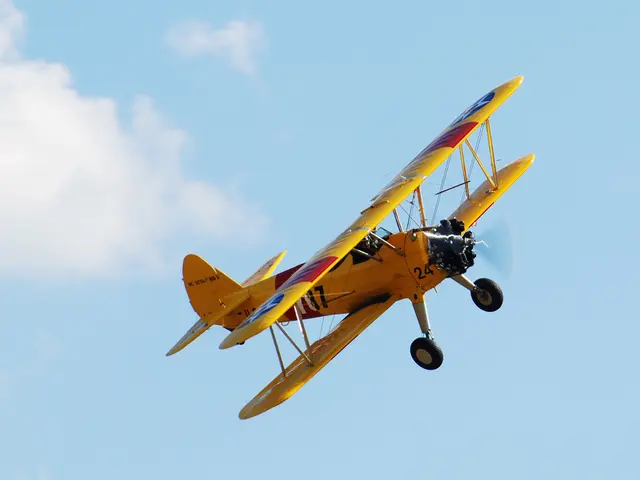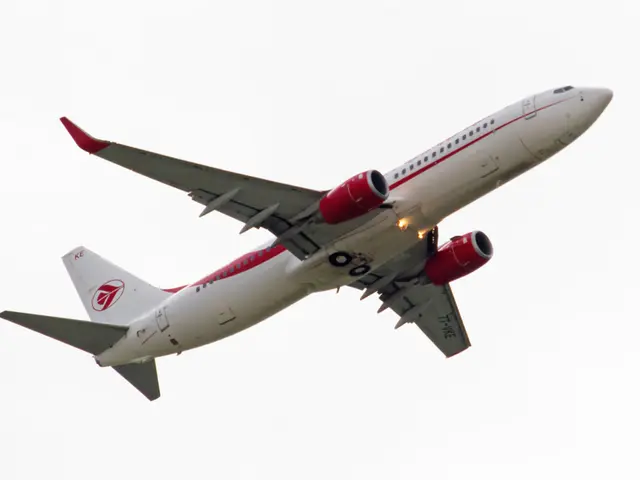Defense Delays Decision on NGAD Until New Trump Administration Takes Office
The Air Force's Next-Generation Air Dominance (NGAD) fighter program is undergoing a delay in decision-making as the incoming Trump administration takes over, with the current review and technology maturation contracts set to continue during the transition period.
According to the Air Force, the Secretary of the Air Force will defer the NGAD's major decision to the next administration while they continue analyzing the program and taking necessary actions to maintain decision space for NGAD. They've extended the current contracts for NGAD to further mature designs and systems, and asked the industry competitors to update their proposals to account for the schedule/milestone delays.
Boeing and Lockheed Martin, current Air Force fighter manufacturers, are the presumed main competitors for NGAD. While Northrop Grumman had originally declined to bid on the program, they may later pursue the Navy's next-gen fighter. Northrop Grumman has contracts to develop engine/vehicle interfaces for NGAD under the Next-Generation Aerospace Propulsion program, alongside Boeing, Lockheed, GE Aerospace, and Pratt & Whitney.
Officials initially planned to award an engineering and manufacturing development contract or contracts for NGAD this fall, but in the summer, Air Force Secretary Frank Kendall ordered a "pause" on the program due to doubts about the program'sRequirements matching the evolving threat. Kendall acknowledged the high price tag for NGAD and the need for additional resources to lower its cost.
Kendall has ordered an internal review of the program and formed a panel of former Air Force leaders with expertise in stealth projects to provide advice. No end date for the review has been set yet.
The Air Force budget request for NGAD in 2025 was $2.75 billion, with a budget of nearly $28.5 billion forecasted through the end of the decade, including the Collaborative Combat Aircraft effort. For NGAD alone, the five-year plan calls for $19.6 billion in funding. The Air Force anticipates a 2026 budget request of around $3.2 billion for NGAD.
In updating their proposals, contractors will not be modifying their technical concepts, but rather adjusting their cost estimates to account for the delays from the "pause". The spokesperson declined to reveal the number of participating contractors, the value of the Technology Maturation and Risk Reduction contracts, or the expected duration of the extension, as the program remains largely classified.
The Air Force is not currently planning to separate the budgets for the NGAD fighter and Collaborative Combat Aircraft, as both have their own distinct line items within the program element. The Collaborative Combat Aircraft represents a significant portion of the overall NGAD family of systems.
- The deferral of major decisions on the Air Force's Next-Generation Air Dominance (NGAD) fighter program by the Secretary of the Air Force opens up the possibility for Northrop Grumman, who originally declined to bid on the program, to later pursue the Navy's next-gen fighter.
- With the extension of the current contracts for NGAD, Boeing and Lockheed Martin, current Air Force fighter manufacturers, are tasked to update their proposals to account for the schedule/milestone delays, ensuring the maturation of designs and systems for the next-generation aerospace technology.
- As the technology maturation contracts continue during the transition period, the Air Force anticipates a 2026 budget request of around $3.2 billion for NGAD, a significant portion of the overall NGAD family of systems that includes the Collaborative Combat Aircraft effort.








